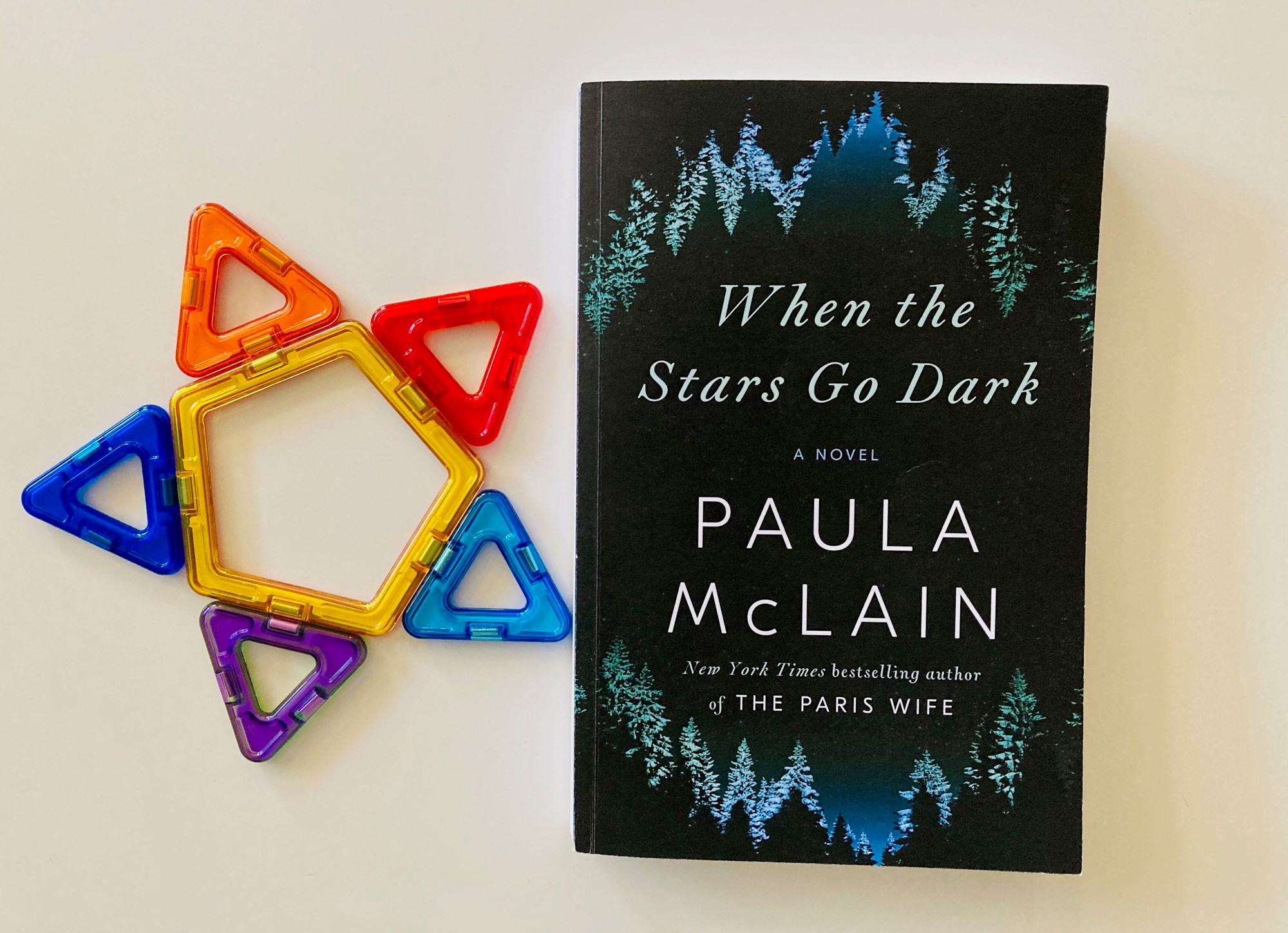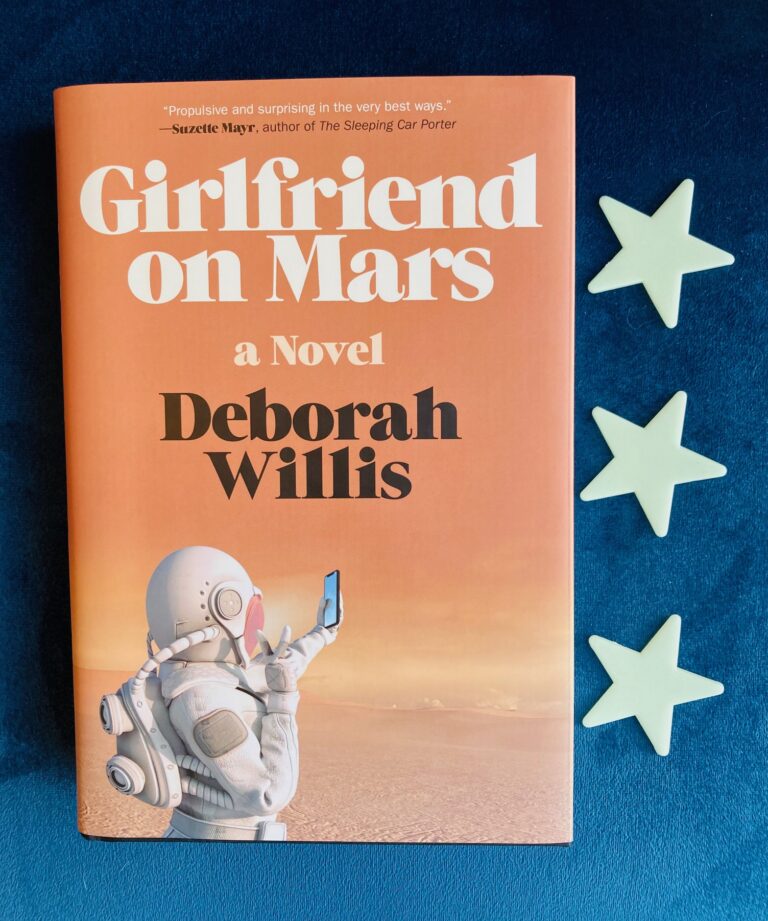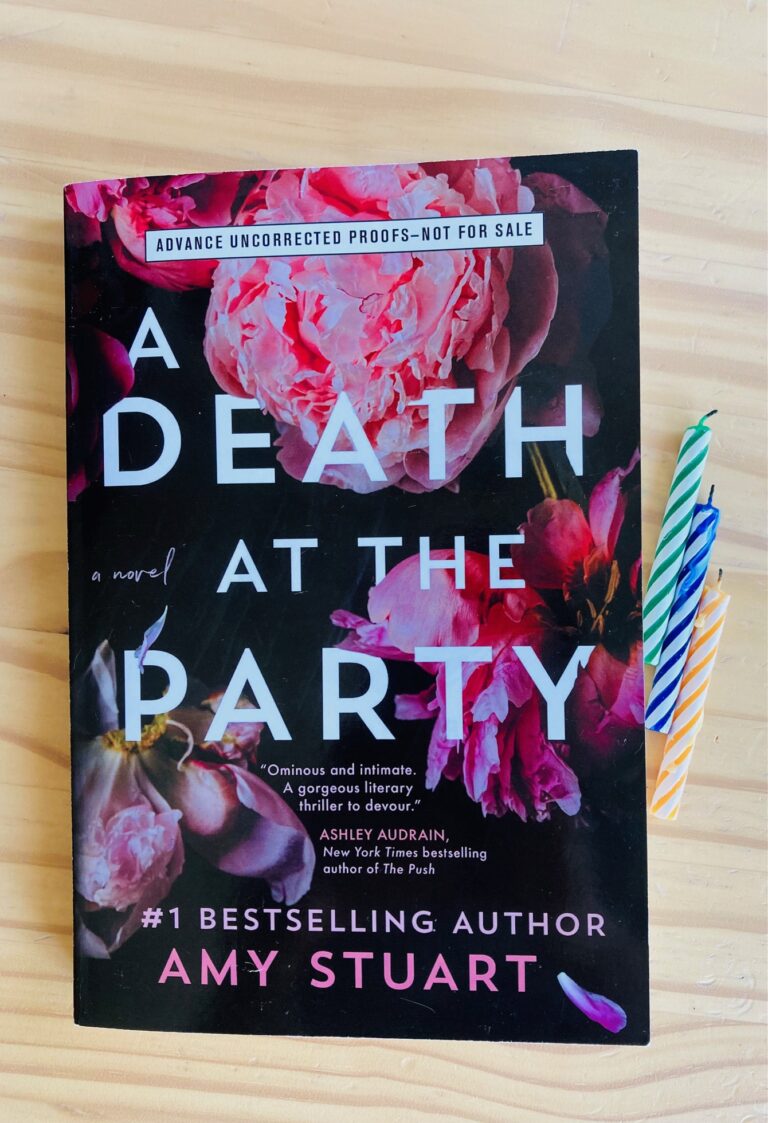Book Review: When the Stars Go Dark by Paula McLain

Whenever I come across a successful author trying their hand at a brand new genre, I’m a bit skeptical. Why bother trying something completely new when you’ve figured out the successful formula to your writing; just give us what we want! But of course I’m no artist, and we should always encourage others to try new things so I try to ignore these inner grumblings when I’m deciding what book to read next. When the Stars Go Dark by Paula McLain is one of these experiments. McLain is known for her historical fiction, reimagining the lives of famous women from history. I reviewed her last book Love and Ruin, all about Ernest Hemingway’s third wife Martha Gellhorn here. It was a bit of a romance, so imagine my surprise when her latest release is an extremely dark tale of murder, abuse, and secrets, the only connection from her others works being the focus on women. This is a very different book from her other novels, and although it dragged in some parts, I was satisfied with the overall experience of reading it.
Plot Summary
Anna Hart is haunted by her past, obsessed with her work of finding missing people, typically young women. She’s also running from some sort of tragedy in her family life, although we don’t discover what that is until the very end of the book. We know that she has recently given birth to a child, but we meet her alone when she decides to stay in small-town Mendocino, California where she spent time as a teenager. She settles into an isolated cabin, leaving only for necessary supplies and long solitary hikes in the forest. She eventually comes across a few childhood friends who remember her from when she last lived there, one of them being the town sheriff who is desperately trying to find a missing girl, Cameron. Desperate for something else to focus on other than her own sadness, Anna offers to help find her, and because her reputation precedes her, local law enforcement eagerly accepts her assistance. Together, they discover similar disappearances across the state that may suggest a serial predator, so they open the scope of their investigation, all while digging up the dark past that many of Mendocino’s residents wished they could forget.
My Thoughts
I found the beginning of this book a slog. I was irritated that the author intentionally kept things from the reader (i.e. Anna’s past, why she had left her family, where her children currently were) and, because I hadn’t grown an attachment to Anna at that point, her evasiveness and baggage bothered me instead of drawing me into the narrative. Still, I plodded on because I always do, and although I found it emotionally taxing, I was content by the ending, having grown to care about Anna and the girls she was searching for. The plotting is slow, and I did guess who the culprit was about 2/3 of the way through, but the reveal was so intense I still got that jolt of adrenaline at the end, even though I expected it.

Even better, the writing itself was evocative, especially in reference to the missing children. I loved this quote about a disappearing girl:
It’s not a crime to go missing, but there does seem to be a telling void here, a familiar dark shimmer that makes me wonder (p. 36 of ARC)
The empathy and care that McLain uses with the victims is palpable, and quite necessary when dealing with the sensitive subject of neglected children. The story reminded me a lot of Rene Denfeld’s breakout hit The Child Finder, in fact, McLain thanks Denfeld in her acknowledgements (pro tip-always read the acknowledgments, they are more entertaining than you realize!).
It’s not just the investigations themselves that deal with this delicate issue, many characters struggle with scars from their past, including Anna who was bounced between foster homes as a kid. Of course having this background allows her to emotionally connect with those she is trying to save, but like many detectives, her successful career always comes at a price, especially to those who rely on her in their personal lives. It’s an understandable trope that mystery novelists often rely on; people who investigate child abuse and murder are messed up, they are seeing the worst of humanity! Still, McLain introduces us to one of Anna’s past partners who enjoys a healthy family life, he’s lucky enough to have the ability to ‘switch off’ while home, compartmentalizing the horrors he sees at work to a place inside that he only accesses at will. Although we empathize with Anna and her difficult childhood, McLain offers us hope through this other character (albeit in a minor way, we don’t hear much from him) because she’s so clearly showing us that all cops don’t have to be broken. This may seem like an inconsequential thing to mention, but I offer this as a glimmer of positivity for potential readers who may feel they can’t handle this book. You can, there is no gratuitous violence, and much is left unsaid, the suspense of what could happen is the hardest part.
Looking back on the title of this book, I should have realized sooner how dark it would be, but I’m still glad I read it. I prefer McLain’s earlier book to this one, but that doesn’t mean I won’t reach for her next foray into this genre if she decides to bring back Anna Hart a second time.





I recently finished reading a nonfiction book about a serial killer set in the 1960s. Something interesting I learned: in the 1960s so many young people up and disappeared because they were hippies. Teen boys and young men often reappeared later after their adventure was over. Teen girls and young women did not. When parents tried to work with local police to find their missing children, police often ignored their pleas, saying kids run away all the time because they’re hippies. Can you imagine how many girls and women in the 1960s were likely murdered and society just never bothered to look??
That’s part of why I’m pleased there are so many books now dedicated to demonstrating the value of women and girls and finding them or their killers.
Ugh that’s so sad, but not surprising. I’ve got a few true crime books on my shelf that deal with that very thing. Right now I’m reading a book about the cult by Keith Raniere! Review to come soon…
I’m afraid when authors hold things back it has the same effect on me as you – it irritates me to the point of switching off rather than making me want to read on to find out what I’m not being told. And damaged detectives – is there really any room left for more of them? Think I’ll pass on this one…
Haha, sorry, just read that over, and I sound even grumpier than usual! :D
haha it’s ok! It made me a bit grumpy too
I hadn’t planned to read this but now I’m intrigued… hmmm…
It is quite dark Laila, proceed with caution!
Hahaha, I know exactly what you mean about not having taken the intended “cue” from a book’s title. I read a collection of stories last year which gave away the theme in the title and I completely missed it! It’s like when someone points out a detail in a cover illustration and I’ve completely overlooked that part of the picture…like a razor blade instead of a petal in a bouquet. Oops.
I’ve never felt drawn to McLain’s novels but I’ve found it interesting to read the different responses to a different kind of story from her pen.